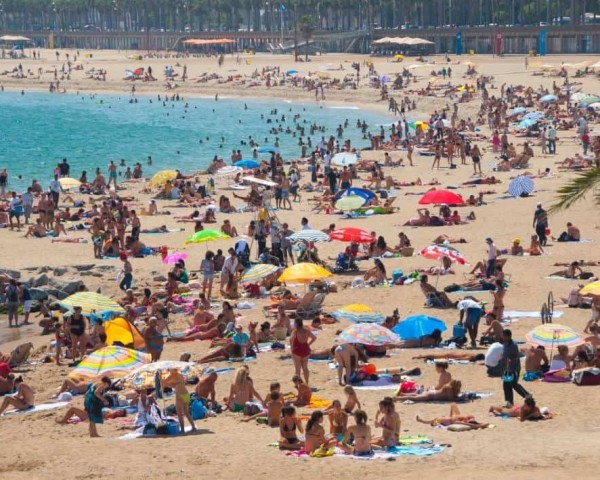The Sagrada Familia, the Ramblas, Park Güell… but also the crowds, the noise, and the high accommodation costs. With an ever-increasing influx of visitors, Barcelona wants to review its tourism model, which has become a source of tension among the residents.
According to the authorities, there are an average of 170,000 visitors per day, and tourism contributes to 13.5% of the Catalan capital’s GDP. However, according to the latest municipal barometer, it is also the third source of concern for its 1.6 million inhabitants.
Barcelona’s tourism has seen rapid and aggressive development following the Covid-19 pandemic. In a sign of unease, graffiti and demonstrations with the message “Tourists go home” have increased in recent months in Barcelona due to overtourism. The city is facing record attendance, much like the whole of Spain, which is the world’s second-largest destination after France, with 85.1 million international visitors last year.
Last week, several thousand people protested against the organization of the America’s Cup, a sailing race. This summer, images showing some demonstrators pointing water guns at tourists led to strong condemnation from the authorities, who fear that anti-tourism sentiment could escalate into violence.
“Uncontrolled” Development
Experts point out that rents in Barcelona have increased by 68% in the past ten years. Locals are not against tourism, but they are against uncontrolled tourism.
To ease tensions, the mayor of Barcelona, Jaume Collboni, announced in June his intention to ban the rental of tourist apartments by the end of 2028. This measure could affect 10,000 homes. However, the owners’ association Apartur, outraged by what it considers a “disguised expropriation,” has promised to file a series of appeals. It is demanding one billion euros in compensation if the measure is confirmed.
“No Longer the Same Life”
The municipality is maintaining its position in response to the threat of overtourism. Deputy Mayor Jordi Valls insists they must explore different strategies to combat overtourism and diversify the economy by developing other activities. However, many consider these efforts insufficient, especially since the municipality supports the controversial project of expanding Barcelona airport.
According to Anna Torres Delgado, a professor in the Department of Geography at the University of Barcelona, the municipality needs to address overtourism by reducing or slowing down tourism and attempting to distribute it more evenly over time and territory. However, she believes tourism development strategies should consider economic, social, and environmental indicators.












